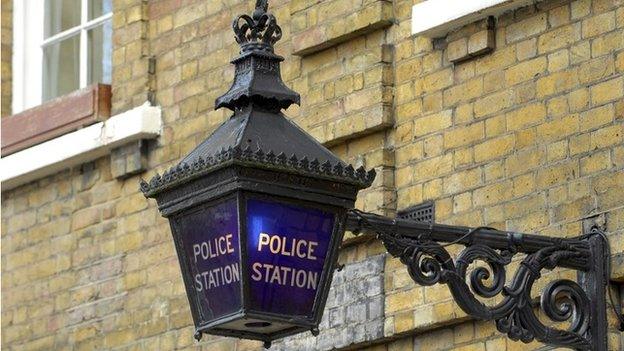Magistrates' courts need 'younger, more diverse recruits'
- Published
- comments

Alex Yip became a magistrate when he was just 27
MPs are calling for urgent action after figures show the majority of magistrates in England Wales are "old and white".
Of more than 17,000 sitting judges, 86% are aged 50 or over and 89% are white.
One of the country's youngest magistrates has said the bench needs to be "far more representative".
A report by the Commons justice committee said there were "serious" problems with diversity as volunteer numbers were falling.
Time commitment
Alex Yip is working to get younger people and ethnic minorities to become magistrates and wants firms encouraged to give staff time off to volunteer.
"I work with a lot of very talented people and experienced people, but the bench needs to be far more representative of the community it is serving," the 34-year-old said.
Mr Yip became a magistrate in November 2009 and is now working with the Magistrates' Association to try to bring more young people into the role.
He said: "It has always been surprising for people when they find out I am a magistrate."
Comparing himself with his colleagues, he added: "I look like I have just come out of university."
Mr Yip, who is also a Conservative Party councillor in Birmingham, thinks the time commitment is a big turn-off for younger people.
He said: "Young people are focusing on work, building their careers, starting families and trying to pay off their mortgages.
"I am fortunate being self-employed that I have more choice in what I can do with my time, but a lot of people feel they have to focus on what is urgent in their lives."
'Good for companies'
He thinks appealing to employers is a key way of recruiting more people from all backgrounds.
"You do have to commit a lot of time [13 days a year plus training] but a lot of people don't realise that employers are obligated to give you that time," he added.
"I think we need to raise awareness and point out that having an employee that is a magistrate is good for their company."

How do you become a magistrate?

Magistrates are volunteers and pass the most serious of crimes to crown court level, but continue to deal with more minor crimes, including minor assaults, motoring offences and theft.
To become a magistrate, you have to:
Be over 18 and under 65
Be able to hear clearly
Be aware of social issues
Be able to take 13 days off work each year (you may be able to claim an allowance if work won't pay you)
Be of good character - no serious crimes, list of minor offences, long-term driving bans or bankruptcy
You also must not have a conflict of interest - such as being a police officer

There were around 30,000 magistrates in England and Wales in 2006, but this total has since fallen to 17,552.
It is believed this is partly due to the number of older magistrates retiring - they must retire at 70 - but the MPs' report also said there was disillusionment with the system, which led to people stepping down from the bench sooner.
Statistics from the committee for 2016 show that there is a close split in the gender of magistrates - 53% are women - but diversity is still lacking when it comes to age, race and disabilities. Only 4% of magistrates identify themselves as disabled.
Sentencing powers
The Commons justice committee called on the government to make its recommendations on diversity and recruitment a reality.
The report also supported an increase for magistrates' sentencing powers from six months to 12 months' custody for a single offence and called on the Ministry of Justice to ensure that at least 90% of court users can reach the nearest magistrates' venue by public transport within one hour.
A Ministry of Justice spokeswoman said: "We welcome this report and will consider its recommendations carefully."

Magistrates in numbers
One in 25 magistrates in England and Wales is aged under 40
86% are aged 50 and over
57% are within 10 years of the retiring age of 70
53% are female
89% are white
4% described themselves as disabled

- Published21 February 2014

- Published12 February 2016
